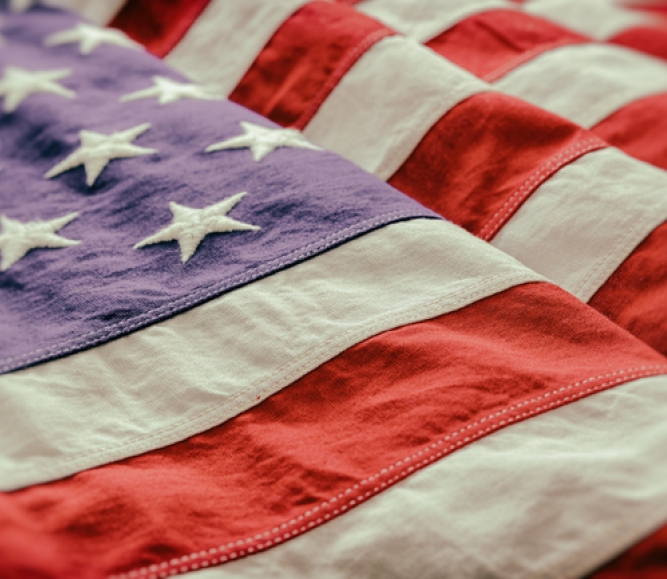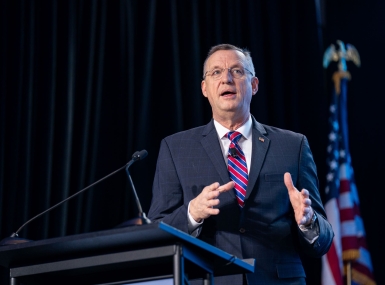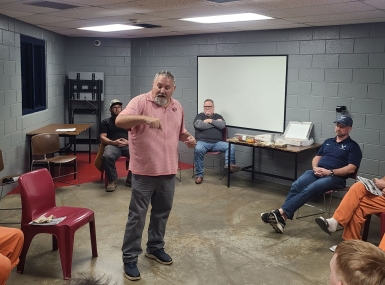U.S. House Committee on Veterans Affairs holds hearing on veteran suicide prevention
Author
Upcoming Events
Related News

Key Takeaways
On September 22, the U.S. House Veterans Affairs Committee (HVAC) held a hearing entitled “Veteran Suicide Prevention: Innovative Research and Expanded Public Health Efforts.” The hearing followed the release of annual data from the U.S. Department of Veterans Affairs (VA) showing that the disproportionate rate of veteran suicide remains an essential public health crisis. Although there is no single cause of suicide, evidence suggests that stable housing, financial security, access to health care, addressing social isolation and loneliness, and treating the effects of trauma are important components of a comprehensive prevention strategy, all of which require coordination and cooperation across communities and at all levels of government.
During the hearing, Chairman Mark Takano (D-Calif.) announced his intention to assemble and pass a bipartisan package of mental health and suicide prevention bills in the near term. Rep. Takano hopes to include provisions that will improve training for mental health providers, auto-enroll service members in VA databases during the transition to civilian life, increase resources for the Veterans Crisis Line and more.
Given the important role that county governments play in serving our nation’s veterans at the local level, NACo sent a letter to the Committee thanking the Chair and Ranking Member for their focus on this critical issue. The letter includes key policy recommendations to strengthen the partnership between counties and the federal government in preventing veteran suicide, including:
- Passing the Commitment to Veteran Support and Outreach (CVSO) Act to provide new federal resources for County Veteran Service Officers (CVSOs), which help veterans access their federal health, disability and pension benefits—important forms of support that can reduce the incidence of suicide
- Increasing resources for county governments to lead community-based suicide prevention efforts
- Improving opportunities for counties to support service members who are transitioning to a post-military civilian life
NACo looks forward to working with the Committee to ensure these priorities are included in any forthcoming legislative package. To read the full letter to the Committee, click here. To learn more about opportunities to support the CVSO Act, click here.
The Veterans Crisis Line can be reached 24 hours a day, 7 days a week by calling 1-800-273-8255 and pressing 1, or by texting 838-255 or engaging via the Crisis Line's website.
ADDITIONAL RESOURCES
- NACo Blog: Twentieth anniversary of 9/11 terrorist attack highlights importance of county veteran suicide prevention efforts
- NACo Blog: President signs law authorizing service dog program for veteran mental health
- NACo Webinar: Veteran Suicide Prevention—Strategies for County Leaders
- CVSO Act Letter of Support Template
- CVSO Act Fact Sheet
Advocacy
Twentieth anniversary of 9/11 terrorist attack highlights importance of county veteran suicide prevention efforts
During the last two weeks of August 2021, veterans reached out to the Veterans Crisis Line at far higher rates than during the same period last year, with the hotline receiving 98 percent more texts, 7 percent more calls and 40 percent more online chats.

Related News

Helping veterans, with an assist from counties, is ‘priority number one,’ VA secretary says
County officials can “touch more lives than any member of Congress or any governor,” because they see their constituents every day, said Doug Collins, the new VA secretary.

County Countdown – January 14, 2025
Every other week, NACo's County Countdown reviews top federal policy advocacy items with an eye towards counties and the intergovernmental partnership.

